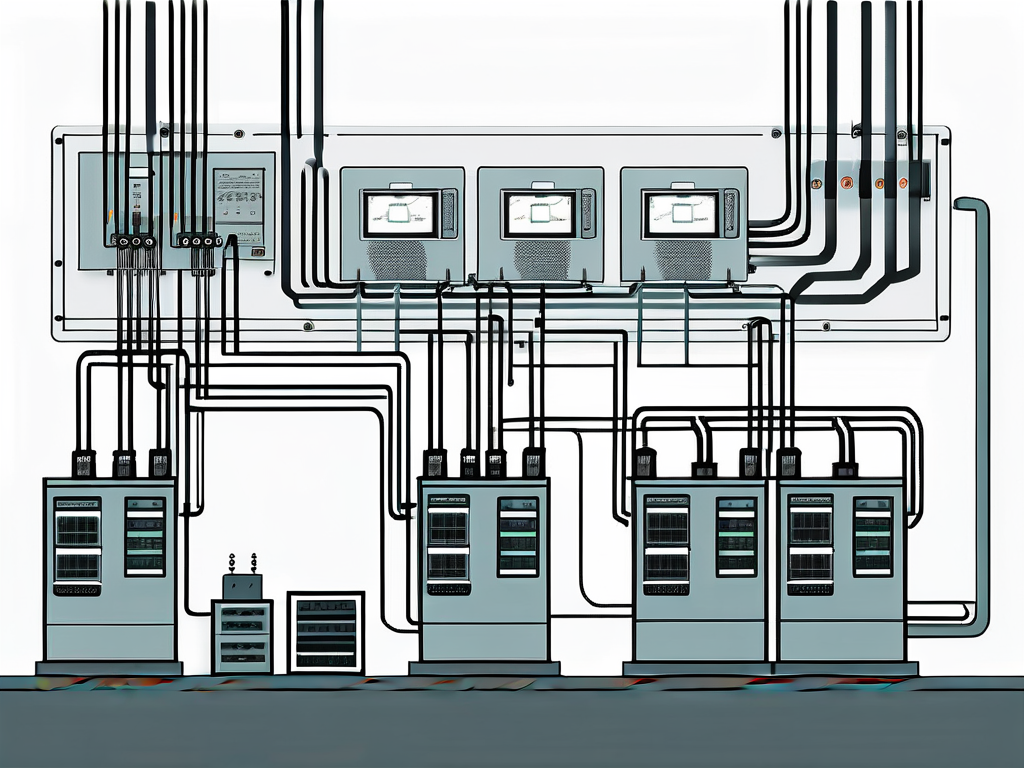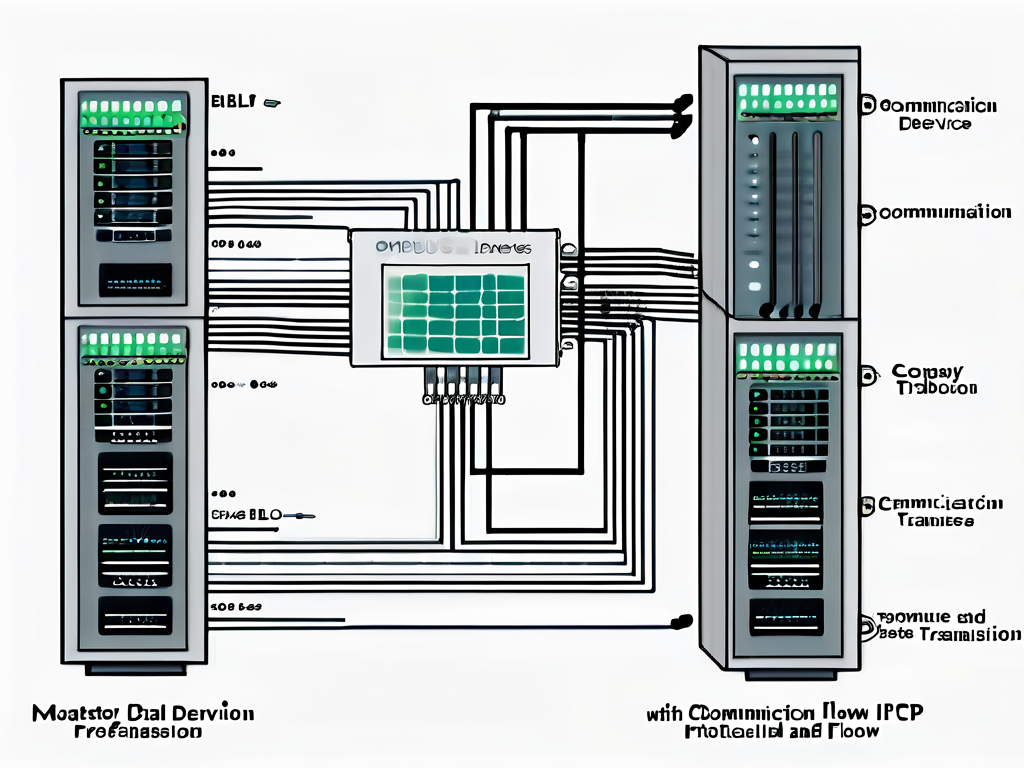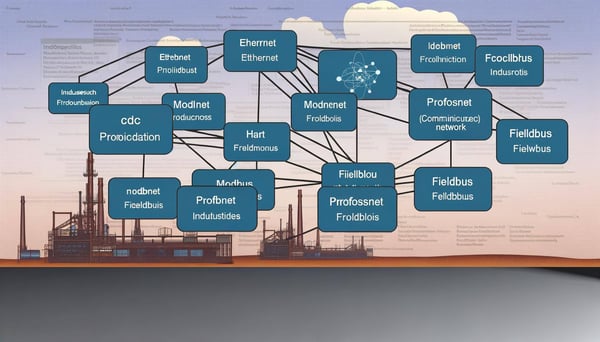
Fundamentals of Modbus TCP/IP
In the world of industrial automation, the importance of reliable communication between devices cannot be overstated. One protocol that has stood the test of time in this regard is Modbus TCP/IP. This protocol is a variant of the Modbus family, which has been a staple in the industry since its inception in the late 1970s. Modbus TCP/IP combines the simplicity and robustness of the original Modbus protocol with the versatility and global reach of the TCP/IP protocol suite.
Understanding Modbus TCP/IP
Modbus TCP/IP is a simple and robust protocol that was designed to allow communication between automation devices. It is an open protocol, meaning that it can be used freely and is not tied to any particular manufacturer. This has led to its widespread adoption in the industry.

The 'TCP/IP' part of the name refers to the underlying protocols used for communication. TCP/IP, or Transmission Control Protocol/Internet Protocol, is the fundamental communication language of the internet. By using TCP/IP, Modbus can leverage the existing infrastructure of the internet for communication between devices, regardless of their physical location.
Modbus TCP/IP vs Modbus RTU
While Modbus RTU (Remote Terminal Unit) and Modbus TCP/IP are both variants of the Modbus protocol, they differ in several key ways. Modbus RTU is a serial communication protocol, typically used for connecting automation devices over short distances. It is simple and efficient, but it lacks the global reach and versatility of TCP/IP.
On the other hand, Modbus TCP/IP is a network communication protocol. It uses the TCP/IP protocol suite, which allows for communication over the internet. This means that devices can communicate with each other regardless of their physical location, as long as they are connected to the internet. This makes Modbus TCP/IP a more flexible and scalable solution for industrial automation.
How Modbus TCP/IP Works
Modbus TCP/IP follows a client-server model, where one device (the client) requests data from another device (the server). The server then responds with the requested data. This model is simple and efficient, making it ideal for industrial automation applications.

The communication process begins when the client sends a request to the server. This request includes the function code, which specifies the type of operation to be performed, and the data address, which specifies the location of the data. The server then processes the request and sends a response back to the client.
Function Codes
Function codes are a key component of Modbus TCP/IP communication. They specify the type of operation to be performed, such as reading or writing data. There are many different function codes available, allowing for a wide range of operations.
For example, function code 3 is used to read multiple holding registers, while function code 16 is used to write multiple registers. By using these function codes, a client can request a wide range of data from a server, making Modbus TCP/IP a versatile protocol for industrial automation.
Data Addressing
Data addressing is another important aspect of Modbus TCP/IP communication. Each piece of data in a Modbus device is assigned a unique address, which is used to identify the data in communication. This allows a client to request specific data from a server, making the communication process efficient and precise.
There are four types of data in a Modbus device: coils, discrete inputs, input registers, and holding registers. Each type of data has its own address range, allowing for a large amount of data to be stored and accessed in a Modbus device.
Benefits of Modbus TCP/IP
Modbus TCP/IP offers several benefits that make it a popular choice for industrial automation. One of the main benefits is its simplicity. The protocol is easy to understand and implement, making it accessible to a wide range of users.
Another benefit is its robustness. Modbus TCP/IP is a reliable protocol that can handle a wide range of conditions, making it suitable for industrial environments. It also offers good error detection and recovery mechanisms, ensuring reliable communication between devices.
Open Protocol
As an open protocol, Modbus TCP/IP is not tied to any particular manufacturer. This means that it can be used with a wide range of devices, regardless of their make or model. This flexibility makes Modbus TCP/IP a cost-effective solution for industrial automation, as it allows for the integration of devices from different manufacturers.
Global Reach
By using the TCP/IP protocol suite, Modbus TCP/IP can leverage the existing infrastructure of the internet for communication. This gives it a global reach, allowing for communication between devices regardless of their physical location. This makes Modbus TCP/IP a scalable solution that can accommodate the growing needs of industrial automation.
Conclusion
In conclusion, Modbus TCP/IP is a simple, robust, and versatile protocol that is widely used in industrial automation. Its use of the TCP/IP protocol suite allows for global communication, making it a scalable solution for the growing needs of the industry. Whether you are a seasoned professional or a newcomer to the field, understanding the fundamentals of Modbus TCP/IP is essential for success in the world of industrial automation.
With its open nature, global reach, and robustness, Modbus TCP/IP continues to be a trusted choice for industrial communication. As the world of industrial automation continues to evolve, the importance of reliable communication protocols like Modbus TCP/IP will only continue to grow.



